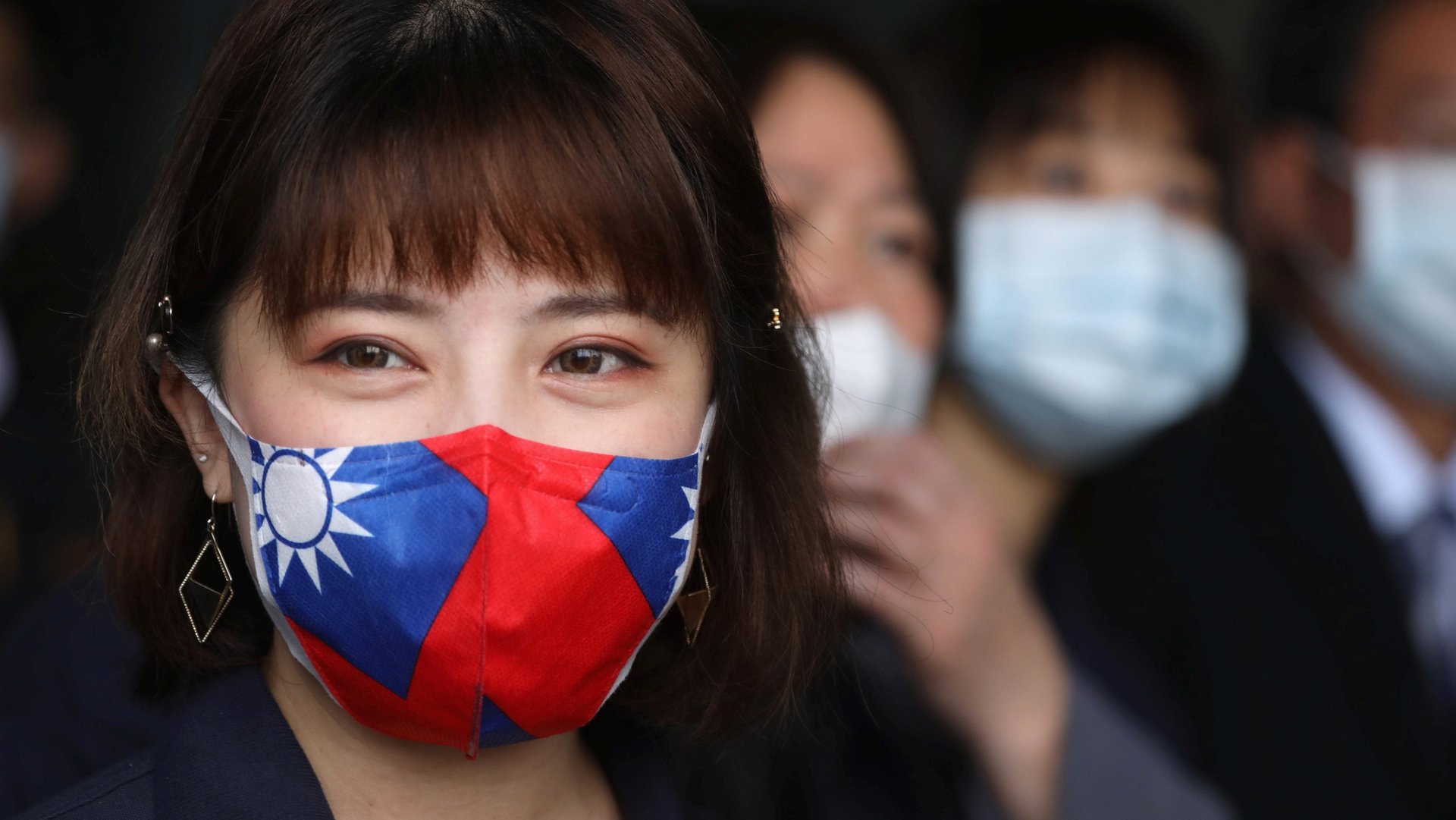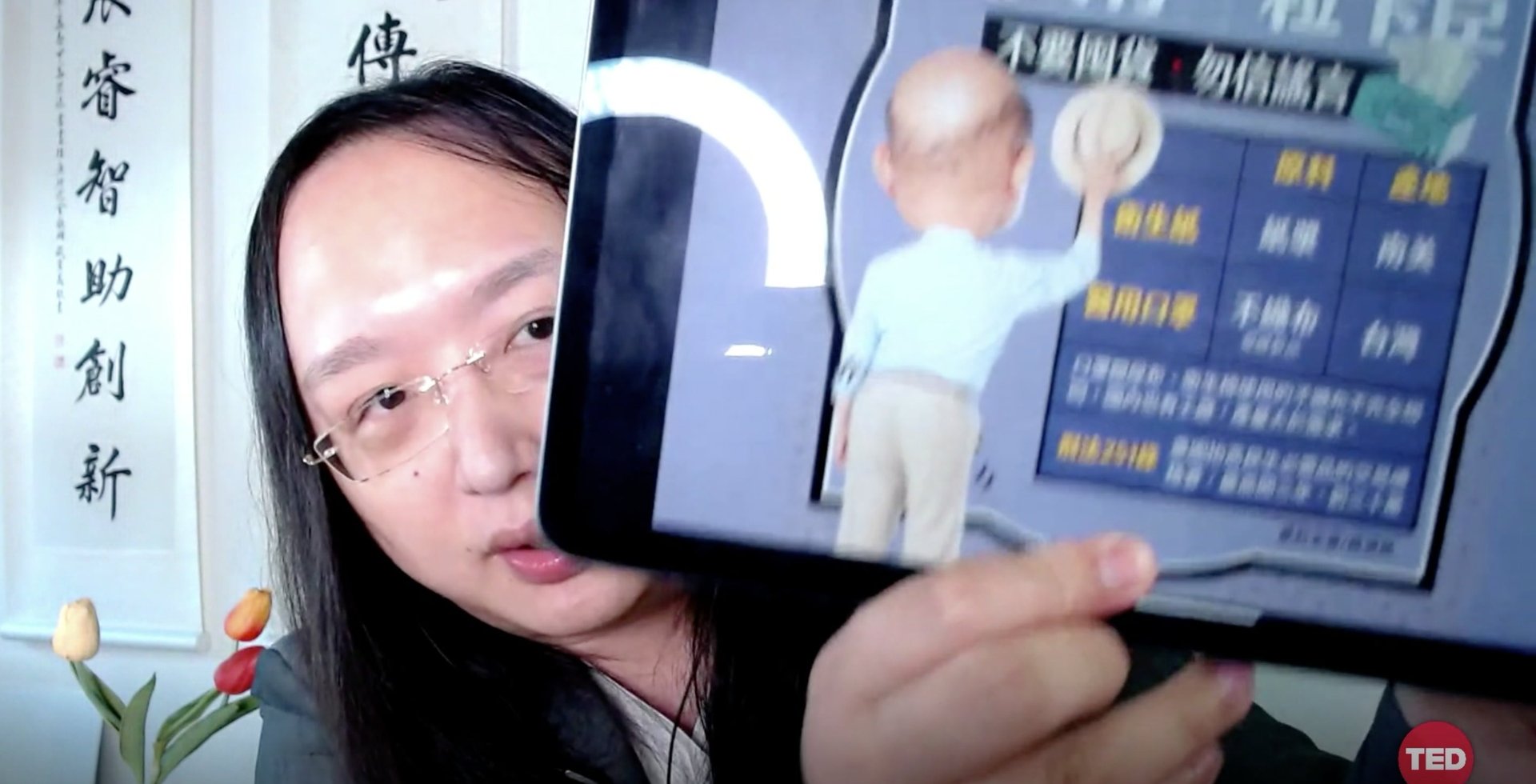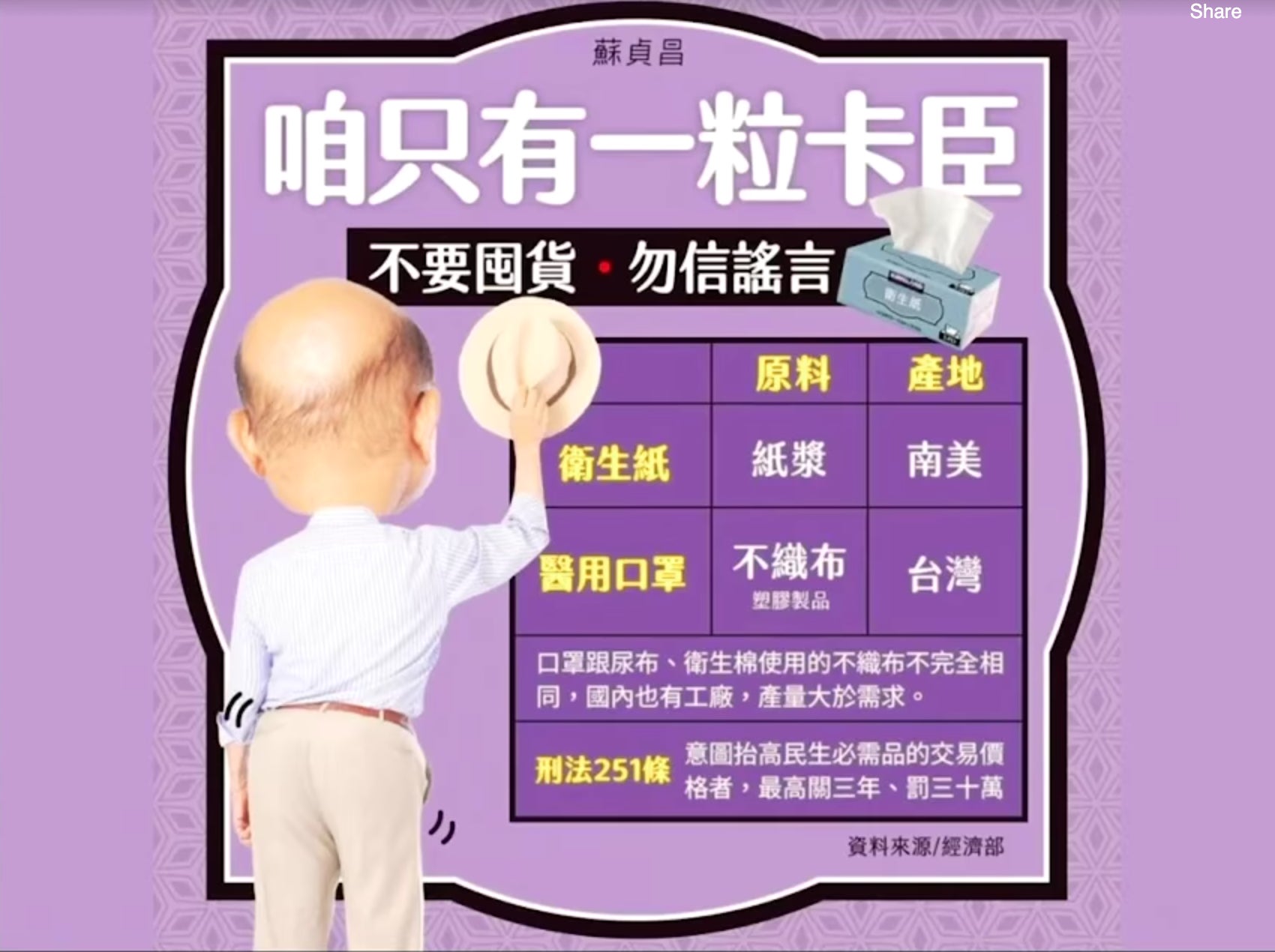Taiwan is using humor as a tool against coronavirus hoaxes
There’s nothing inherently funny about the novel coronavirus. The latest World Health Organization numbers indicate that more than 383,000 people have died from Covid-19, and the number of confirmed cases worldwide has eclipsed the 6 million mark.


There’s nothing inherently funny about the novel coronavirus. The latest World Health Organization numbers indicate that more than 383,000 people have died from Covid-19, and the number of confirmed cases worldwide has eclipsed the 6 million mark.
But Taiwan, which is lauded for its success in containing the spread of coronavirus, has adopted humor as a tool in fighting the pandemic. Speaking at the TED conference this week, Taiwan’s digital minister Audrey Tang explained how a tactic called “humor over rumor” has effectively quashed misinformation about Covid-19.
Every time a hoax surfaces on social media, Tang and her band of civic hackers unleash a joke containing the facts of the matter within two hours of spotting the post, based on the idea that since people like to share funny memes on social media, doing so allows the government to wrest control of the narrative. Tang also said that government agencies have employed professional comedians as “engagement officers” to help in the cause. If they miss the two-hour window, Tang’s team locates the perpetrators and recruits them as allies in Taiwan’s coronavirus effort.
Inviting outsiders into the process speaks to Tang’s own journey to civic service. Before joining the government in 2016, Tang was a civic hacker who worked during the Sunflower Movement of 2014, a large-scale student protest which called for greater transparency in the government’s trade dealings with China.

In one example, the Taiwanese government deployed the “humor over rumor” stratagem to quell panic buying of toilet paper in February, after allegations spread online that Taiwan’s increased production of face masks was compromising its ability to make bathroom tissues because manufacturers were competing for the same raw materials.
In response, Tang’s team released a meme featuring Taiwan’s premier Su Tseng-chang sashaying his rear end, with the caption “we only have one pair of buttocks.” The illustrated graphic also shows a table clarifying that the pulp in toilet paper is imported from South America and has no bearing on medical mask production because those raw materials are sourced locally. Tang said that they later found out that a toilet paper retailer started the rumors as a marketing ploy.

Hitting the right tone is critical too, said Tang. “Humor is a sublimation of… outrage,” she said. To address the toilet paper rumors, for example, the premier purposely made himself the butt of the joke. “This was key,” Tang explained. “People shared it because it didn’t have toxic or malicious intentions.”
The health ministry has also introduced a dog as a Covid-19 communications ambassador. The affable shiba inu named Zongchai (a pun that roughly translates to mean “chief shiba” and “chief executive”) routinely appears in posters and Facebook posts to transmit health messages for the public. The health ministry has even explained social distancing in dog terms: Stand three dog-lengths apart when indoors and two when outdoors.

In contrast to the stern public health warnings in China, Tang said that embracing levity has allowed Taiwan to address other social issues stemming from the pandemic. For example, after reports surfaced that some boys were bullied in school for wearing pink face masks, Taiwan’s Central Epidemic Command Center showed up wearing pink surgical masks at a press briefing. “[They made] sure everybody learned about gender mainstreaming,” said Tang, who is also the first transgender official in Taiwan’s cabinet.
The savvy use of digital technology is a key pillar in Taiwan’s coronavirus strategy. Apart from combatting coronavirus falsehoods in social media, Tang’s team also created an app that updates face-mask inventories at local pharmacies every 30 seconds, while Taiwan’s former vice president, Chen Chien-jen, who was trained as an epidemiologist, produced a webinar to teach citizens about Covid-19. Taiwan has also managed to track tens of thousands of people under home quarantine by leveraging cellphone location data, a strategy known as a “digital fence.”